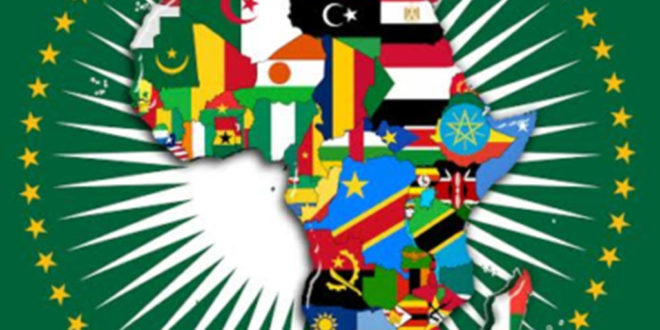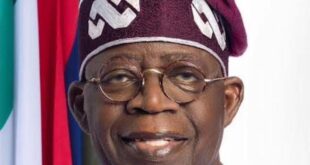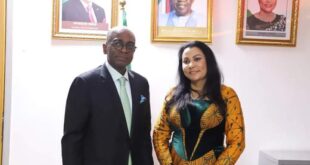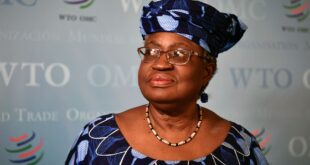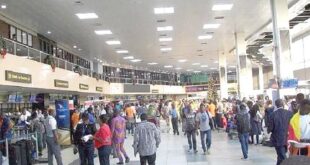Despite the challenging backdrop of a global pandemic and external economic shocks, Africa is expected to recover from its worst recession in half a century and reach 3.4 percent growth in 2021, the African Development Bank said in its 2021 African Economic Outlook report.
The outbreak of the novel coronavirus in December 2019 has taken a massive toll on Africa, hitting tourism-dependent economies, oil-exporting economies and other-resource intensive economies the hardest, as well as deepening inequality.
The African Economic Outlook, published annually since 2003, provides headline numbers on Africa’s economic performance and outlook. This year’s theme “From Debt Resolution to Growth: The Road Ahead for Africa”, highlights the impact of Covid-19 and government debt, offering mitigating measures to governments and policy makers.
The continent-wide projected recovery, following a 2.1% contraction in 2020, does not remove the threat of increasing poverty, the report said. An estimated 39 million Africans could possibly slip into extreme poverty this year, following about 30 million who were pushed into extreme poverty in 2020 as a result of the pandemic. The report finds that populations with lower levels of education, few assets, and working in informal jobs are the most affected and must be protected.
Presenting the report during a virtual launch ceremony, African Development Bank Vice President and Chief Economist Rabah Arezki cautioned that Africa’s predicted growth could be subject to major downside risks arising from both external and domestic factors. “The cost of inaction will be large,” he warned.
In 2020, government spending across Africa the continent skyrocketed as countries strived to support their populations through the pandemic.
This has had a direct negative impact on budgetary balances and debt burdens: the average debt-to-GDP ratio for Africa is expected to climb by 10 to 15 percentage points in the short to medium term, fueled by the surge in government spending and the contraction of fiscal revenues as a result of Covid–19.
This will result in fast-paced debt accumulation in the near to medium term. Although the average debt to-GDP ratio had stabilized around 60 percent of GDP, recent debt restructuring experiences in Africa have been costly and lengthy because information asymmetries, creditor coordination problems, and the use of more complicated debt instruments, the report said.
The African Development Bank reacted swiftly to the Covid-19 pandemic, putting in place a crisis response facility to support countries in mitigating the health and economic effects of the pandemic. The Bank also launched a $3 billion Fight COVID–19 social bond on global capital markets, which at the time was the largest U.S. dollar-denominated social bond ever.
However, the fundamentals of Africa’s debt burden must be prioritized and not ignored, African Development Bank President Dr. Akinwumi Adesina said.
“The Bank made a strategic and forward-looking choice to discuss a topic that could become a key policy concern in the near term,” he writes in the report’s foreword.
“We need to address Africa’s debt and development finance challenges in partnership with the international community. Much larger financial support is needed, and private sector creditors need to be part of the solution. The time for one last debt relief drive for Africa is now.”
The report makes important recommendations for a multi-pronged policy approach to addressing the pandemic. These include supporting the health sector with resources for health care systems to cope with the virus and other preventable diseases; monetary and fiscal support to underpin economic recovery; expanding social safety nets and making growth more equitable; minimizing the long-term implications of the pandemic on human capital accumulation by opening schools and scaling up active labor market policies to retool the labor force for the future of work through digitalization, industrialization, and diversification.
Hannan Morsy, Director of the African Development Bank’s Macroeconomic Policy, Forecasting and Research Department, said: “We have a once-in-a-century opportunity at building forward better, more equitable, more sustainable and above all more resilient. Prompt and bold measures are needed to make it happen, the report highlights the required actions.”
Earlier, Professor Joseph E. Stiglitz, recipient of the 2001 Nobel Memorial Prize in Economic Sciences, joined Dr. Adesina for a one-and-one conversation as the event opener. This led into a broader panel discussion to discuss the report.
 The Commerce Africa African Reneissance
The Commerce Africa African Reneissance
